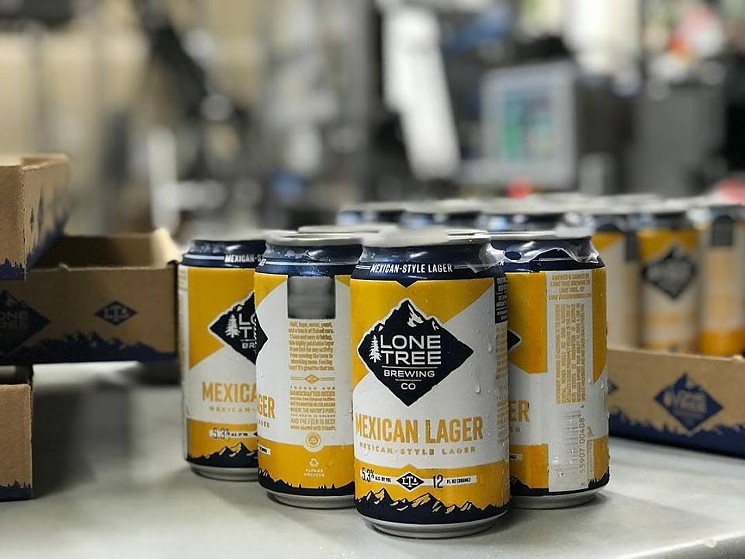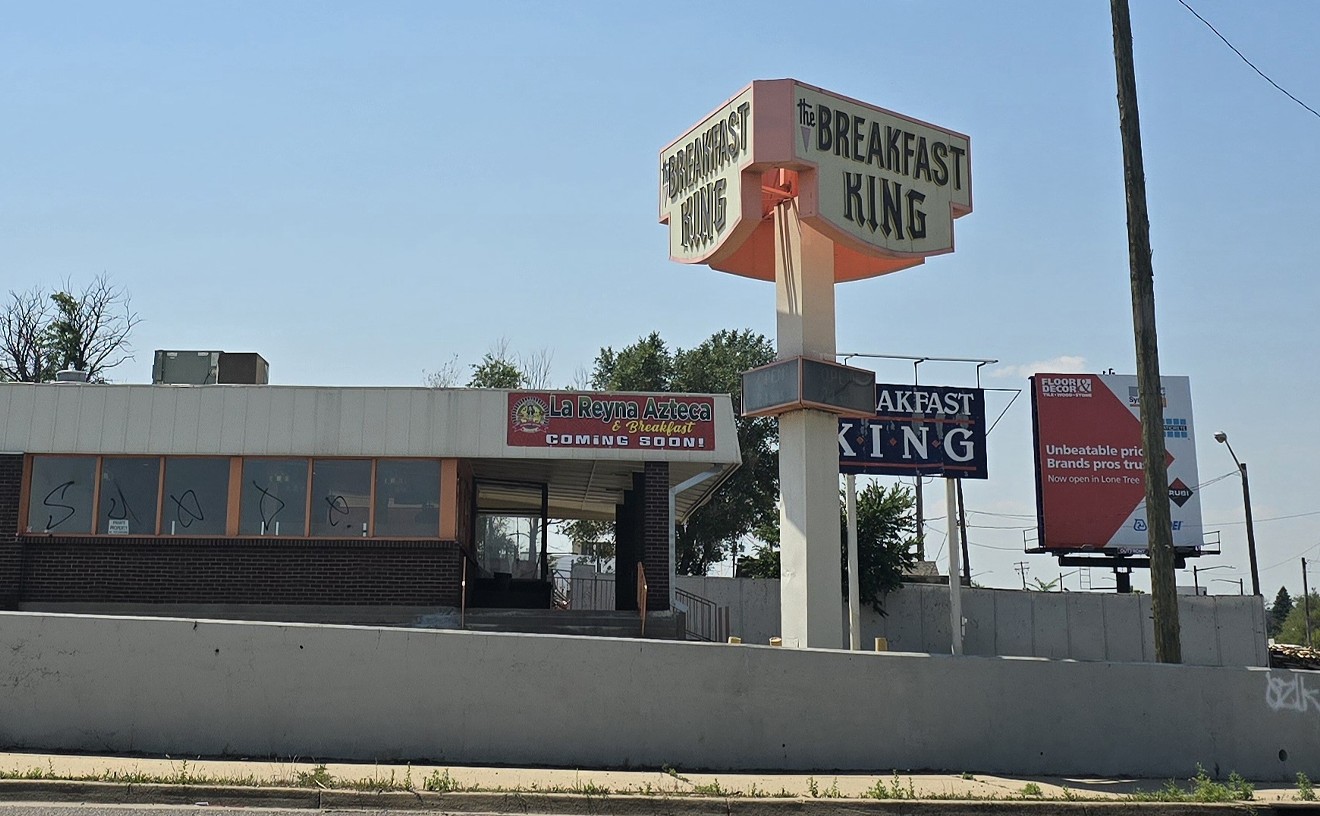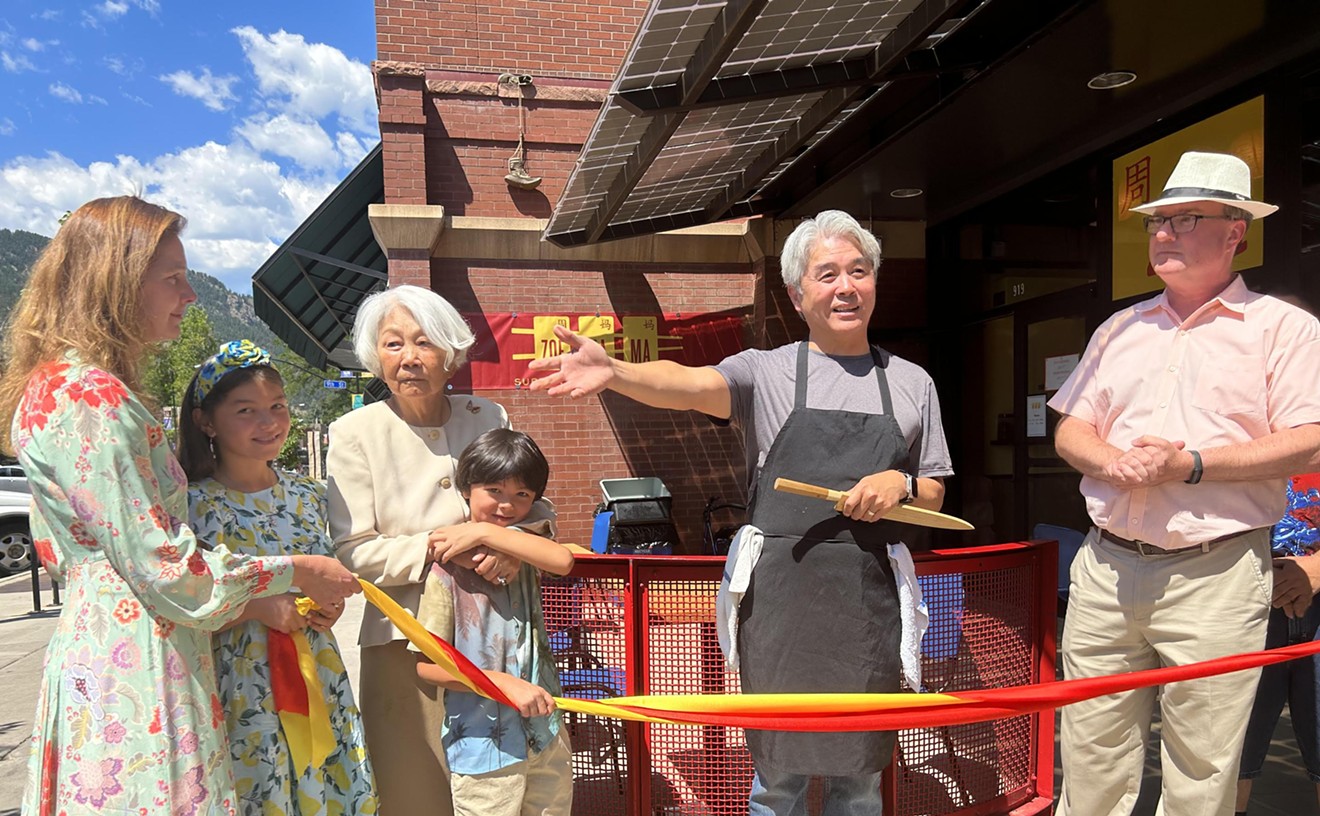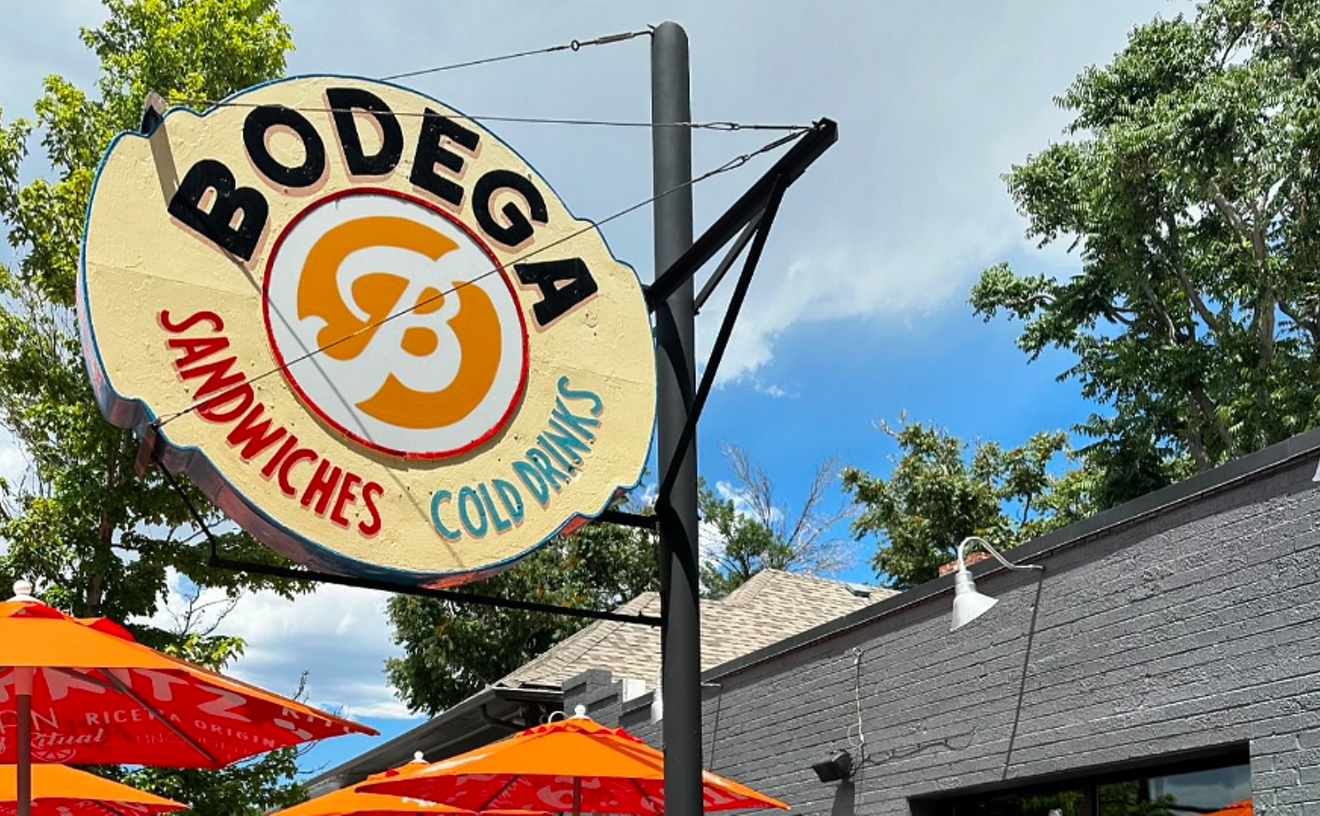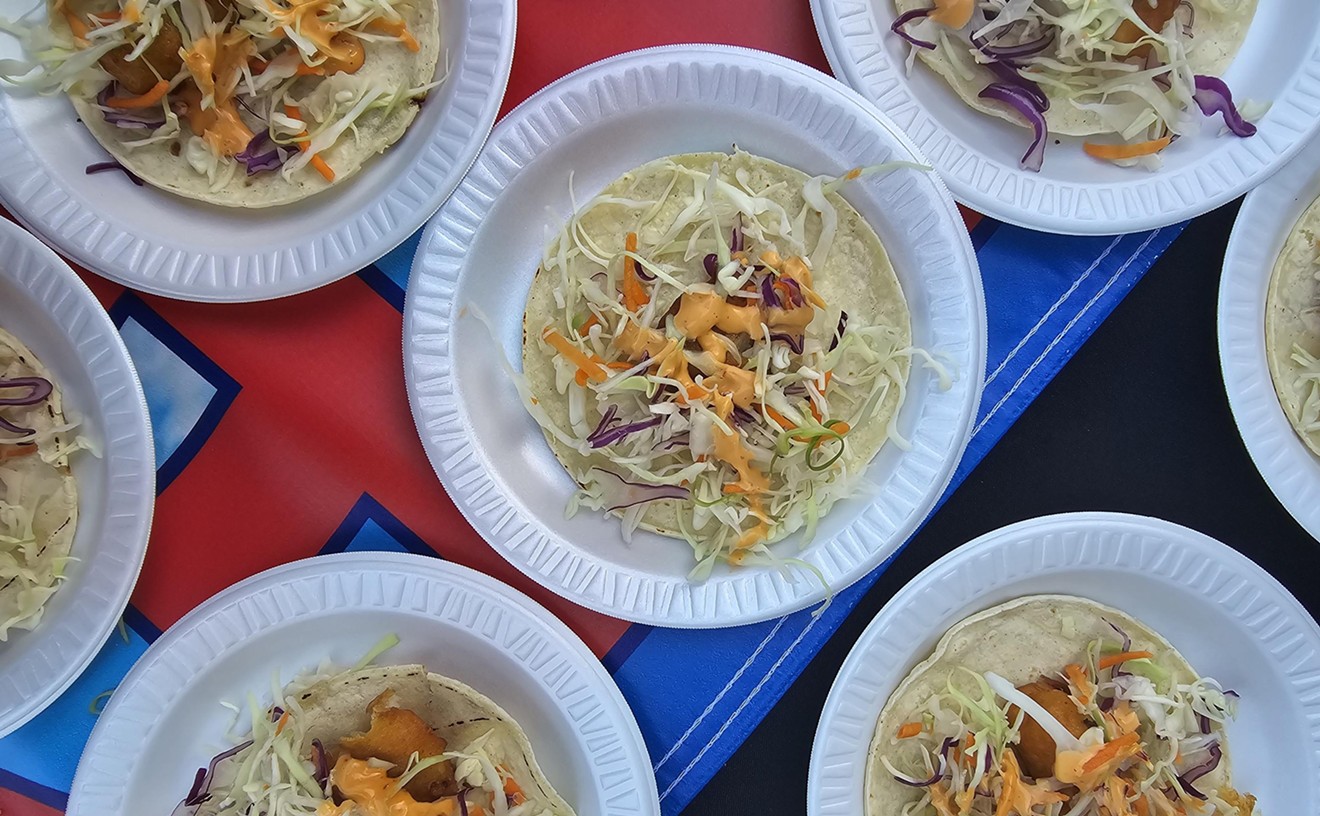More than fifty Colorado craft breweries are set to roll come January 1, 2019, when sales of full-strength beer will be allowed at every grocery and convenience store in the state.
About forty were granted the appropriate "fermented malt beverage" license by the Colorado Department of Revenue as of December 3. Not all of those breweries may actually get placement in stores, however, while others could be biding their time to see how the process goes for their peers. The rest to join the fray are brewpubs that didn't have to apply for FMB licenses because they are already allowed to sell beer to chain stores.
The full list (see it below) includes some of the tiniest beer makers in the state, like Bootstrap Brewing in Niwot and High Hops Brewing in Windsor, along with the biggest, like New Belgium, Odell and Oskar Blues. There are also many medium-sized breweries that plan to step up their game when it comes to sales and recognition.
"We want our core beers to be really competitive," says Tommy Bibliowicz, head brewer and co-owner at 4 Noses Brewing in Broomfield. Local companies are going to have to stake out their territory against bigger out-of-state breweries that have entered the market here, he adds, and against the craft-like beers produced by major corporations like MillerCoors, Anheuser-Busch InBev and Constellation Brands. "It's important not to let them gain market share. We have to at least put up a fight."
Bibliowicz believes the grocery chains have recognized that Colorado consumers are different than consumers in other states, in that they are seeking out local producers. In January, those consumers will find at least three of the brewery's beers, Perfect Drift, Raspberry Blond and ’Bout Damn Time, in supermarkets. And if things go well, Bibliowicz says, 4 Noses is ready to boost its production to meet demand.
But not every small brewery will get the same kind of attention. In addition to New Belgium, Odell and Oskar Blues, consumers will see at least one offering from Left Hand, Great Divide, Avery, Ska, Dry Dock, Boulder Beer, Upslope, River North Brewery and Denver Beer Co. in almost every grocery store in Colorado.
Other breweries, though, will only appear in a few dozen places. Both King Soopers and Safeway have said they will take a regional approach to stocking beers, at least at first. For example, 4 Noses may be found only in the Boulder County area, while Lone Tree Brewing might only show up in stores in the southern suburbs.
And that's just fine with Lone Tree founder John Winter. "We were very specific with both Safeway and King Soopers," he says. "We targeted locations that are around the brewery, basically I-70 to Castle Rock. We think customer awareness will be better that way." As of January, Lone Tree will have its beer in 34 Safeways; King Soopers didn't add Lone Tree to its list, but Winter says he will keep "pinging them" in the future.
Over at Dry Dock Brewing in Aurora, which is one of the ten largest breweries in the state, co-owner Kevin DeLange says staff has been ramping up production for several months to meet the demand he will likely see from hundreds upon hundreds of Safeways, King Soopers, 7-Elevens, Walmarts, Circle Ks and many more.
But he is also being cautious, because it's possible that a gain in the chain stores may mean that traditional liquor stores are selling less of his beer — and that's not what he wants.
“This is a big change for everyone who is involved. It will have a huge impact, and no one knows what it will be,” he says. “The biggest difficulty is figuring out how much beer to supply to the [chain stores] and how much our traditional partners, the liquor stores, are going to want. So we are all being conservative.”
In reality, though, the new change is likely to be a huge boon for the fifteen largest breweries in the state. They will pick up the most sales and will be able to supply the most beer on a regular basis. Things will be more touch-and-go for the smaller and medium-sized breweries. It will also be a windfall for the grocery stores, who have only been allowed to sell 3.2 beer at most of their locations for the past 85 years. Liquor stores, on the other hand, are likely to see a significant sales decline, depending on their location and product mix.
But with nearly 400 breweries in the state, the numbers above mean that only 10 percent have so far decided to participate in what will be a very different game for the entire craft-beer industry in Colorado. The rest either don't package beer or have decided that the trouble of selling to supermarkets isn't worth the cost.
Some of the bigger names that have either decided against it or are taking a wait-and-see approach include TRVE Brewing, Ursula Brewery and Liquid Mechanics.
"We have a hard time keeping up with demand in the tasting room and our existing liquor stores where we sell beer," says Liquid Mechanics president Davin Helden. "There isn't a need for us to jump through hoops to be on the shelves on January 1."
Eventually, he might change his mind, but for now, he has one other point to make: "Grocery store sales suck ass," Helden explains bluntly. "We did our due diligence and tried that out with a large national grocery chain [when they were each only allowed to have one location that sold full-strength beer]. It took me one and a half months to get in there, two meetings and a mountain of paperwork. So that sucked. Once you're in, the volume is pretty good, but it's a ridiculous amount of work. You have to stock your own shelves, monitor your own inventory, and are basically an employee of theirs."
But the worst thing, he continues, is that supermarkets store their beer warm. "The liquor stores we are in have cold storage — not just the cold-storage shelves, but the storage for all the backup beer. That means a lot to us, and we found that generally grocery stores don't care how the beer is stored. Sure, mass-produced light lagers might taste the same after sitting at room temp for three weeks, but that beer always tastes bad. We don't want our beer to be treated the same as chips and toilet paper in the store. It just isn't who we are."
Here is the list of breweries that Westword was able to confirm will be in supermarkets and convenience stores come January 1 — or who at least have the right license. There are likely some breweries that we missed.
Aspen Brewing
Avery Brewing
Black Bottle
Bonfire
Bootstrap
Boulder Beer Company
Bristol
Butcherknife
Copper Kettle Brewing
Crooked Stave
Crystal Springs
Denver Beer Co.
Dry Dock
Durango Beer Company
Eddyline Brewing
Elevation Beer Company
Epic Brewing
4 Noses
Funkwerks
Great Divide
High Hops Brewery
Holidaily
Left Hand Brewing
Lone Tree Brewing
New Belgium
Odell
Odd13 Brewing
Odyssey Beerwerks
Oskar Blues
Paradox Beer Company
Pikes Peak
Prost Brewing
Red Leg Brewing
Renegade
River North Brewery
Rockyard Brewpub
Saint Patrick's
Sanitas
Ska Brewing
Sleeping Giant
Station 26
Steamworks
Tommyknocker
Upslope
Telluride Brewing
The Post
Wibby
Wonderland
[
{
"name": "Air - MediumRectangle - Inline Content - Mobile Display Size",
"component": "12017618",
"insertPoint": "2",
"requiredCountToDisplay": "2",
"watchElement": ".fdn-content-body",
"astAdList": [
{
"adType": "rectangle",
"displayTargets": "mobile"
}
]
},{
"name": "Editor Picks",
"component": "17242653",
"insertPoint": "4",
"requiredCountToDisplay": "1",
"watchElement": ".fdn-content-body",
"astAdList": [
{
"adType": "rectangle",
"displayTargets": "desktop|tablet"
},{
"adType": "rectangle",
"displayTargets": "desktop|tablet|mobile"
}
]
},{
"name": "Inline Links",
"component": "18838239",
"insertPoint": "8th",
"startingPoint": 8,
"requiredCountToDisplay": "7",
"maxInsertions": 25
},{
"name": "Air - MediumRectangle - Combo - Inline Content",
"component": "17261320",
"insertPoint": "8th",
"startingPoint": 8,
"requiredCountToDisplay": "7",
"maxInsertions": 25,
"watchElement": ".fdn-content-body",
"astAdList": [
{
"adType": "rectangle",
"displayTargets": "desktop|tablet"
},{
"adType": "rectangle",
"displayTargets": "desktop|tablet|mobile"
}
]
},{
"name": "Inline Links",
"component": "18838239",
"insertPoint": "8th",
"startingPoint": 12,
"requiredCountToDisplay": "11",
"maxInsertions": 25
},{
"name": "Air - Leaderboard Tower - Combo - Inline Content",
"component": "17261321",
"insertPoint": "8th",
"startingPoint": 12,
"requiredCountToDisplay": "11",
"maxInsertions": 25,
"watchElement": ".fdn-content-body",
"astAdList": [
{
"adType": "leaderboardInlineContent",
"displayTargets": "desktop|tablet"
},{
"adType": "tower",
"displayTargets": "mobile"
}
]
}
]



